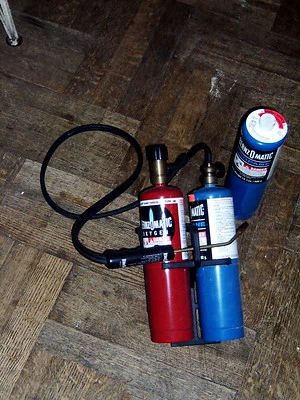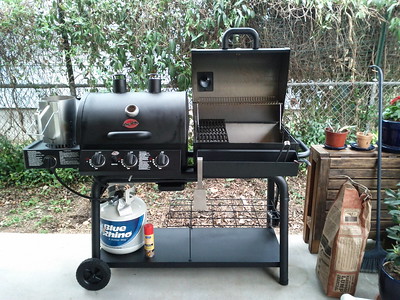
Storing butane canisters at home properly is crucial for ensuring safety. Here is a closer look at the best locations for storing butane canisters, along with the advantages and disadvantages of each.
Outdoor vs. Indoor Storage
Advantages
- Better ventilation reduces the risk of butane buildup.
- Separation from living areas minimizes risk in case of leaks or fire.
Disadvantages
- Exposed to environmental factors like temperature swings and moisture.
- Potential for theft or tampering.
Indoor Storage
Advantages
- More controlled environment.
- Easier to keep an eye on for regular checks.
Disadvantages
- Higher risk due to proximity to living areas.
- Potentially poor ventilation, especially if stored improperly.
Recommendation: Outdoor storage in a well-ventilated, locked shed or garage is generally considered safer and preferable, unless you have a specialized storage cabinet with climate control and excellent ventilation indoors.
Shed or Garage Storage
Shed
- Pros: Separation from the home, potentially better ventilation.
- Cons: May lack climate control; may need additional security.
Garage
- Pros: Easier access, potential for better security measures.
- Cons: Often shares air with the home; flammable items like gasoline may also be stored here, increasing risk.
Recommendation: Both sheds and garages can be good options if they are well-ventilated, secure, and kept at a consistent temperature. However, they should not be used for storage if they house other flammable materials or are directly connected to living spaces without adequate ventilation and fire separation.
Legal Restrictions or Community Guidelines on Storage Locations
Local or State Laws
Vary widely, may dictate maximum amounts, specific storage requirements, or even ban residential storage entirely.
Homeowners Association (HOA) Guidelines
Some HOAs may have specific rules regarding the storage of flammable materials.
Insurance Policies
Some insurance companies require compliance with specific safety standards for coverage in case of fire or other incidents.
Recommendation: Always check your local laws, community guidelines, and insurance policies to make sure you are compliant with all regulations regarding butane storage.
While it may seem convenient to store butane canisters in easy-to-access locations, safety must be the paramount consideration. Outdoor storage in a secure, well-ventilated area is often the best option, but always ensure you are following all legal and community guidelines when choosing a storage location for butane canisters.
Read also: Which is Better to Use in Household: Butane or Propane?
Special Storage Considerations
Storing butane canisters is not just about finding a convenient spot in your garage or shed; it involves carefully considering a variety of factors to ensure safety. Here are some special storage considerations that can further mitigate the risks associated with storing butane canisters at home.
Climate-Controlled Areas
Advantages
- Consistent temperatures reduce the risk of canister leaks or ruptures.
- Humidity control minimizes corrosion risk.
Disadvantages
- Increased cost for climate-controlled storage solutions.
- Might not be feasible for outdoor storage options like sheds.
Recommendation: If you’re storing butane canisters for an extended period, a climate-controlled area is ideal. The investment in a climate-controlled space or cabinet can significantly reduce risks associated with temperature fluctuations and humidity.
Special Cabinets or Containers Designed for Flammable Substances
Advantages
- Specifically designed to store flammable substances safely.
- Often come with built-in ventilation and fire-resistant materials.
- May include features like leak-proof sump basins to catch any spills.
Disadvantages
- Can be costly to purchase and install.
- Might take up significant space.
Recommendation: Specialized storage cabinets designed for flammable substances offer an extra layer of safety and are highly recommended for homeowners who store multiple canisters or other flammable materials. These cabinets meet stringent safety standards and are often compliant with legal requirements.
Limited Quantity Storage
Advantages
- Reduces the amount of flammable material stored, thereby reducing risk.
- Easier to manage and regularly inspect a smaller number of canisters.
Disadvantages
- Frequent purchases might be necessary for regular users, which can be inconvenient.
- Some people may find it challenging to estimate their usage needs accurately.
Recommendation: It’s wise to limit your storage to only as many butane canisters as you’ll use in a reasonable amount of time. Not only does this make it easier to perform regular safety checks, but it also reduces the hazards associated with storing a larger amount of a flammable substance.
By taking these special storage considerations into account, you can significantly reduce the risks associated with storing butane canisters. Whether you opt for a climate-controlled space, a specialized cabinet, or simply decide to limit the quantity you store, each of these measures contributes to making your home a safer place.
Read also: Is Butane Like Gasoline? (What are the Differences)
Here are Some Consideration When Storing Butane Canisters at Home
The storage of butane canisters at home requires careful consideration to ensure both safety and functionality. Butane is a flammable gas, and improper storage could result in leaks, fires, or even explosions. Here are some general guidelines you should follow when storing butane canisters at home:
Storage Guidelines:
- Cool and Dry Area: Store in a cool, well-ventilated area away from direct sunlight, heat sources, and flames. The storage area should ideally be climate-controlled to keep the temperature consistent.
- Avoid Indoor Storage: Do not store butane canisters in living spaces. A detached shed or garage is often recommended.
- Proper Ventilation: Make sure the storage area is well-ventilated. Butane can build up and become hazardous in a poorly ventilated area.
- Horizontal or Vertical: Check the manufacturer’s guidelines on whether the canister should be stored upright or not. Some canisters may need to be stored upright to prevent leakage.
- Original Packaging: Keep butane canisters in their original packaging if possible. This often contains safety and storage information.
- Away from Children and Pets: Store butane canisters out of the reach of children and pets to avoid accidental mishandling.
- Limited Quantity: Store only the amount you think you will use in a reasonable amount of time. The fewer canisters you have, the lower the risk.
Warning:
Never store butane canisters in places where they can be exposed to high temperatures, like near stoves, in vehicles, or in direct sunlight. Exposure to temperatures above 120°F (49°C) may cause the canisters to rupture.
This is a general guideline and the specific requirements for storing butane canisters may vary based on local regulations and the manufacturer’s instructions. Always consult the manufacturer’s guidelines for the most accurate and tailored advice.

Jeremy is a highly experienced professional propane technician with over 21 years of experience in the industry. Throughout his career, he has gained extensive knowledge and expertise in propane gas installation, maintenance, and repair, as well as in ensuring safety and compliance with industry standards. Mike has worked with various residential, commercial, and industrial clients, providing top-notch services and solutions to meet their propane needs. He is dedicated to his craft and passionate about delivering exceptional service to his clients.







